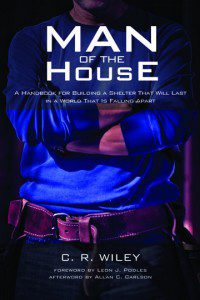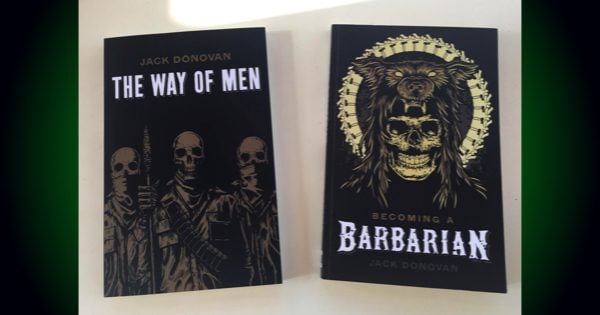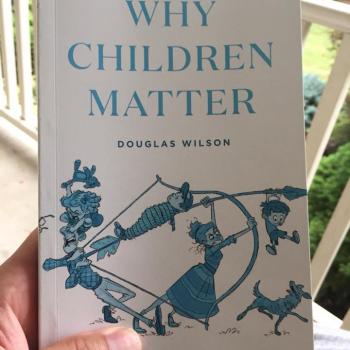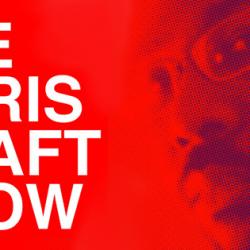When I was in graduate school (Harvard Divinity School) one of my professors put the choice starkly: “It is Nietzsche or Aristotle, make your choice.”*
It seemed off topic at the time, we were working through Montaigne’s essays. But it really wasn’t, because Montaigne, and others like him, have lead us away from Aristotle and in the end gave us Nietzsche.
I’ve been thinking about this for a long time as it applies to another question: “What does it mean to be a man–not just biologically and psychologically–but socially (meaning functionally) and even theologically?”
We all know what liberals think–manhood is essentially nothing.
I’ve never accepted that for a minute. I also know the price of admission to the circle of beautiful people is leaving my manhood at the door. (I’ve rejected the invitation enough times to know that.) If you doubt it, consider this. A few years back a book was published by one of the Seven Sisters with the charming title: The End of Men. The message being: there is nothing to masculinity that we can’t do without. (If a book were submitted to any of the major houses with the title The End of Women, or The End of Homosexuals, or even The End of African Americans, no one would touch it. That The End of Men actually was published is a backhanded compliment in a way–in means masculine men can take a punch.)
Back to Nietzsche and Aristotle
That a traditionally minded man like me should choose Aristotle likely leaves you unimpressed. (Now you know my choice.) But some men are looking to re-valorize manhood using Nietzsche. And one of the many who is popularizing this approach is named Jack Donovan.
 Jack has something of a cult-following among men on the edge. He’s written a number of books, the two most popular being The Way of Men and Becoming a Barbarian. I’ve read them both with a mixture of apprehension and appreciation. I’ve offered to send Jack a copy of my latest book Man of the House. I doubt that he will accept it, largely because he will smell Aristotle at a distance, among other things. Still, it was worth a try.
Jack has something of a cult-following among men on the edge. He’s written a number of books, the two most popular being The Way of Men and Becoming a Barbarian. I’ve read them both with a mixture of apprehension and appreciation. I’ve offered to send Jack a copy of my latest book Man of the House. I doubt that he will accept it, largely because he will smell Aristotle at a distance, among other things. Still, it was worth a try.
But let’s get back to Nietzsche and Aristotle and the choice. I think our books represent the choices a young man can make who knows manhood can mean something. Jack personifies Nietzsche and I am in my own way, Aristotle.
In the background is the metaphysics of the choice. Do we live in a world of given meanings, or do we make our meanings, fashioning them godlike from the raw materials of the natural world?
Regardless, followers of either way can agree the western world is a mess and on its way to collapse. The signs are all around us. And we can agree that men were made for times like these and the next world will call for the recovery of unfashionable virtues. But which ones?
We can also agree that those virtues will need hard edges in order to bring order out of chaos. But Jack wants to leapfrog over the recent history of the west to preChristian european traditions while I believe the virtues called for are still with us, just relegated to the periphery.
Where Jack is strong is on the subject of male fellowship and the history of men and their role on the edge. Men tend to thrive in environments that harden them. It’s those places that put the nagging questions about the purposes of manhood to rest. It is in defending the boundary, or slaying the beast, or even raising a shelter in the snow that men find their manhood confirmed, both to themselves, and to everybody else.
But when it comes to the larger picture, Jack has less to say. As with so many in Nietzsche’s school, Darwin is the guide. And Darwin largely is a disciple of Hobbes when it comes to purposes of social life. Survival is the thing.
But life together is more than a nonaggression pact. Aristotle taught that our ethics and our polities reinforce each other–move one and you move the other. But these do not exist suspended in water. They tend to serve our notions of human happiness and our convictions about the larger metaphysical order (or absence of it).
Jack has very little to say about any of that. He says next to nothing about women and children (at least in the books I’ve read). Just what is a man’s relationship to them apart from the bare facts that we wouldn’t be here without women and we once were children? It is in the tender places that the children of Nietzsche grow silent. (Which is something of a miracle; like Nietzsche they’re all products of the great tradition of German bombast.) The reason they have nothing to say says something about the problem with solipsism generally, it can’t talk itself out of itself.
But we do see some interesting things with Jack recently. He’s exploring Norse myths and looking for spiritual realities that will get him in touch with a larger world. It is not enough to merely reject modernity in all its contemptible softness. We must offer ourselves to something bigger than ourselves.
And to me that’s a positive development. It reminds me of something C. S. Lewis said on the subject of paganism.
* He was summarizing McIntyre, of course–but more generally summarizing the choice between discovering meaning and making it.













